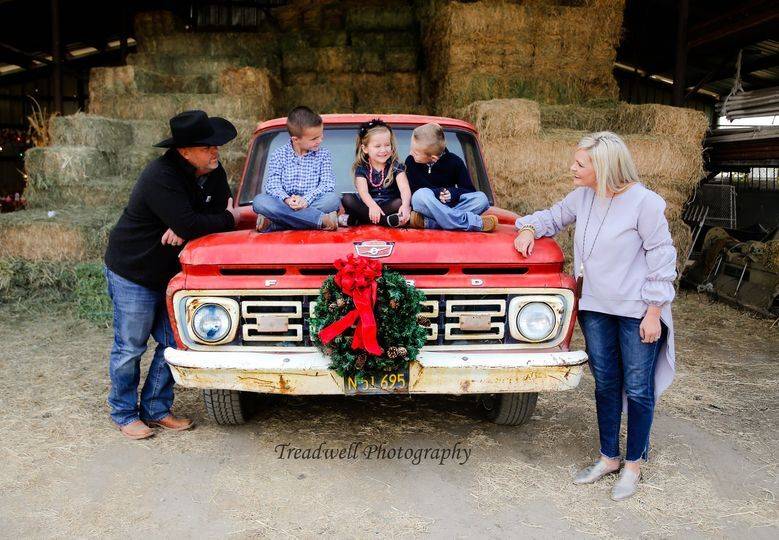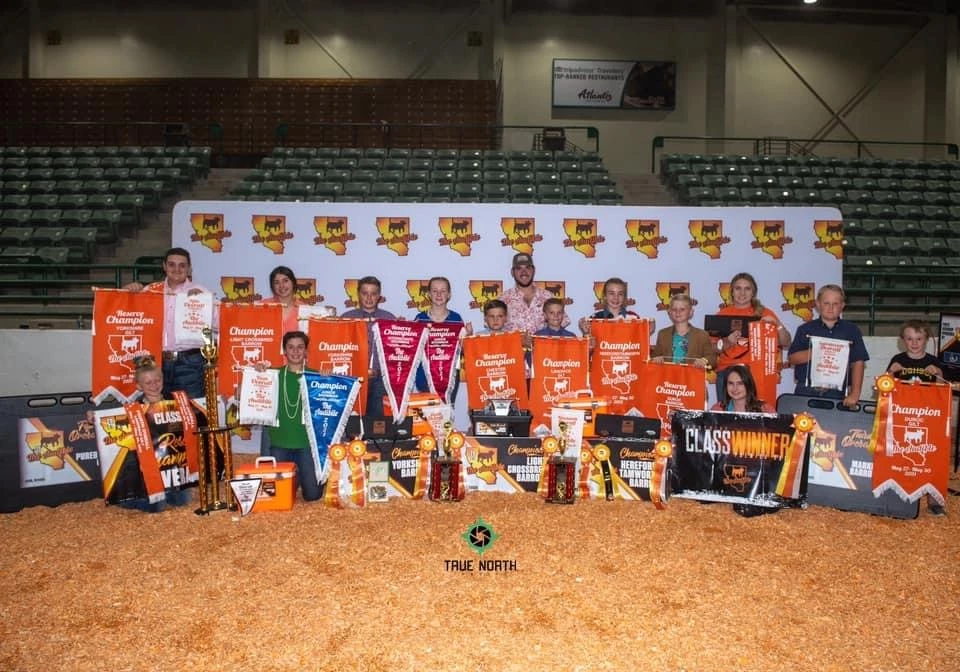Written by DeShea Wallace
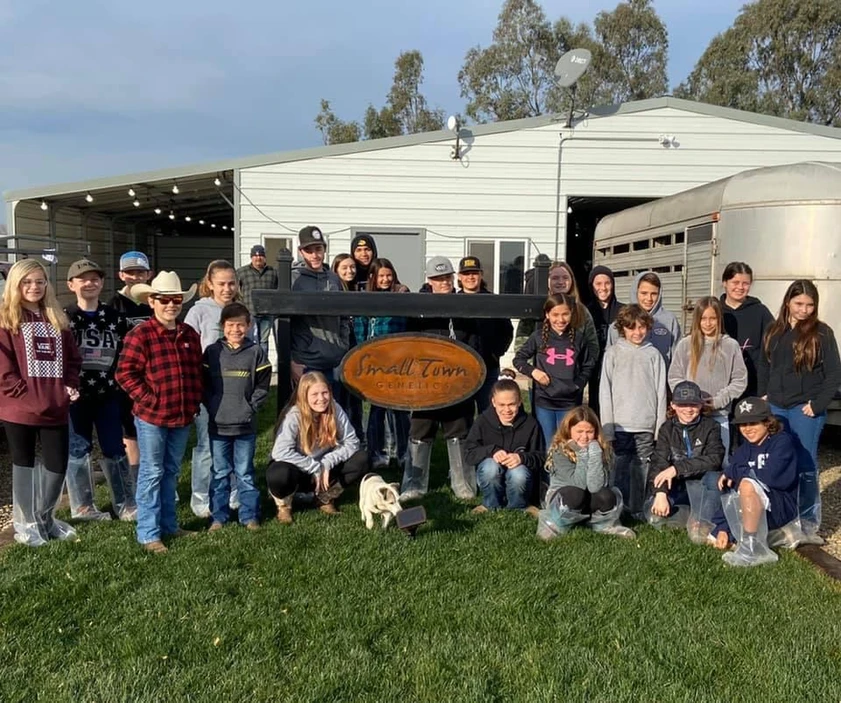
Small town Denair, California is a little pocket of conservative paradise just two hours east of the beach, two hours west of 8,000 foot mountains to snow board on, a short drive from the melting pot of San Francisco, and two hours from the largest trees you would ever see in your life. While California living may have its challenges it undeniably has its benefits as well. That’s at least what James Backman of Small Town Genetics will tell you.
“I think there’s huge opportunity out here for youth to grow and mature. We have basically everything that you can envision in the world within a two or three hour drive any direction. What I call normal is abnormal for most,” says Backman.
James was born and raised in California and has lived there his whole life. His Dad was an Agriculture Education teacher and he spent a lot of his time involved with 4-H and FFA like a lot of small town kids in California did.
“My third year in 4-H I talked my parents into letting me keep one of my county fair pigs back and that’s how Backman Swine Farms came about,” James talks about his early days of breeding hogs. “By the time I was a senior in high school my sister and I had about 30 sows and it was basically a 4-H project that got out of hand,” he jokes.
After graduation James went on to Modesto Junior College and worked on the Swine Unit and then finished up at Fresno State University and was a Swine Technician on staff while finishing up his bachelor’s degree. Upon graduation in 2000 James started Small Town Genetics.
There are four partners in Small Town Genetics. Originally it was Paul and Kathy Barrett along with James and his wife, Kara. About 8 years ago the Johnson brothers bought out the Barrett’s share and have been the partners with Kara and James ever since.
Small Town Genetics currently runs about 200 head of sows and markets 1,500 to 2,000 head to the junior show ring, mainly on the west coast ranging in almost all breeds. Additionally, Small Town always has about eight to twelve boars in stud that they use on their females and sell some semen on as well.
INFLUENCE
When asked who all James can credit for his success and the success of Small Town Genetics he says the list is too long. Like most, family had an influence at a young age by instilling a passion for agriculture and a work ethic.
“I would say probably the biggest influence with pigs would be Doc Williamson, Dr. Scott Williamson at Fresno State,” James says.
During his time at Fresno State is when James really figured out that pigs was what he was passionate about. At the time he was going to school to become an ag teacher with Production Management as his major. The opportunity came up to work on staff as a technician at the swine unit.
“My job at the swine unit was under the supervision of Doc Williamson,” James explains. “Doc was awesome. Teaching you about raising pigs, but also like letting you try your own things and make your own mistakes. One thing he would say is that ‘You can do anything wrong once but don’t do it wrong the second time.’ That’s something that always stuck with me. Don’t be afraid to try something, but if it doesn’t work, let’s try something new,” he explains.
James emphasizes the importance of getting out and experiencing things such as college and how that really shaped him and changed him from the kid who graduated with just 60 kids in his high school class to the man who owns and runs his own business now with conviction.
“You know, the whole point of the university is to try things and expand,” he says. Then there are individuals who were there when he was at his humble beginnings. For James, people like Sam Howell, former NSR Field Representative and Tracy Lorenzen, quickly come to mind. Sam Howell quickly became a friend and confidant when he would come make herd visits in the early days of Small Town Genetics. Even getting a free place to stay and a home cooked meal from Kara from time to time. While Tracy is who James attributes the start to a lot of his herd. When James returned from college, he acquired about 30 females from Tracy and mixed them with what they currently had from Backman Swine Farms. Thus, the very beginning of Small Town Genetics.
“And then Darryl Anderson and Jennifer Shike gave me an opportunity to serve on the NJSA Advisory Board way back when and that was a cool way to get to know more NSR people and breeders on the Executive Board and the breed boards,” says Backman.
It’s no different when it comes to the day-to-day operations on the farm today. James has many key players that make the days go by with ease.
“John Anderson, left the operation about two months ago, he was here the last six years and was in charge of production,” says James. “Then Jose works for us and he’s been here six or seven years now. He does the daily chores and tasks around the farm. So that’s the team here most days.”
TEAM PEACOCK
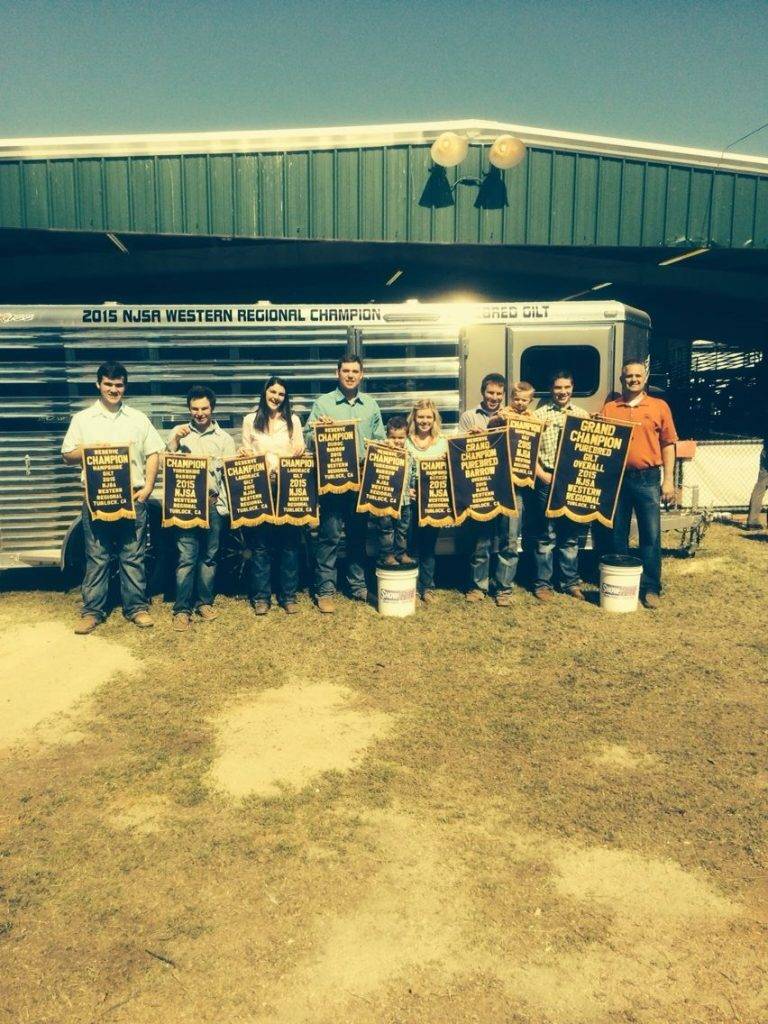
And a team it really is. Whether they are in the barn farrowing sows or at the NJSA Western Regional, Small Town Genetics is a team. James and Kara both grew up highly involved in sports, as well as FFA and 4-H, and now they chase their three kids Kade, Kash and Jacee around to as many sporting events as they do pig barns. But it all comes down to playing as a team. Team Peacock-to be exact.
When James talks about his greatest achievements its easy to mention some of the big livestock breeding accomplishments like selling Monster at the Crossbred Classic to High Point Genetics which is the Grand Sire to Super Monster, a boar that needs no introduction to the industry. In 2009, James sold Paparazzi to Lean Value Sires at the Fall Classic for $52,000. In 2013 he bred the Champion Crossbred Barrow at the World Pork Expo.
“But I think what my greatest achievement has been is Team Peacock and how we have been able to just bring those families together,” James says proudly.
At every show Small Town Genetics rolls up to they have a whole “crew” with them ready to show some pigs, but mostly have some fun.
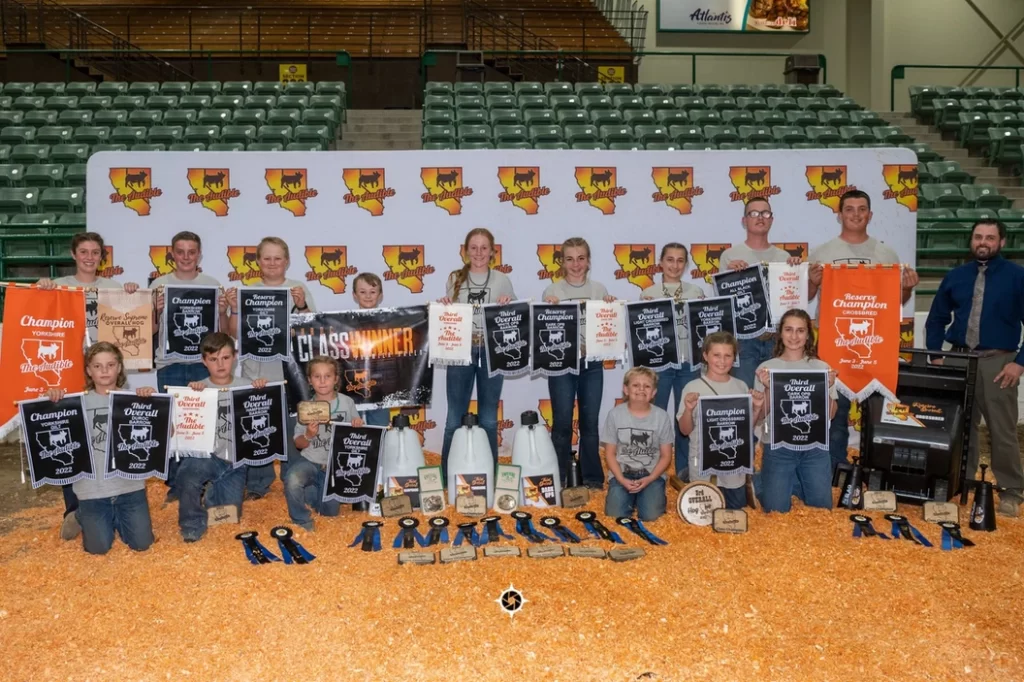
“We have all these kids that are getting along and the youth development part of it. These kids become family,” James says. “I started with some of these kids when they were 10 years old, and they stuck with us, and then you go to their high school graduation party and the kid gets up and talks and they thank their parents for supporting them and Team Peacock or Small Town Genetics. When you get mentioned in those moments about being most influential and the impact their time with Small Town Genetics had on their lives, those are those are the coolest stories. Those are really the reason why we do it.”
CHALLENGES
California is no doubt full of people passionate about the swine industry, specifically the NJSA. Just look at the past Junior Board of Directors and see over half come from the West Coast with officer positions being held by a majority of West Coast kids.
While California has its perks it no doubt serves its challenges to those passionate individuals as well.
“The biggest challenge is the people who don’t think what we do is appropriate,” says James. “The PETA supporters of the world, the farm sanctuaries of the world, those type of things. The different legislation that they put out there making it challenging to raise pigs.”
James says in California there’s more supply and less demand than maybe compared to his Midwest counter parts which is a positive for his business. But they are regulated more, the cost of living is elevated, there are greater steps and more loopholes and more money you have to spend on permits.
“Overall operating cost are just high. Those are the challenges, it’s very expensive in California to raise a pig,” says James.
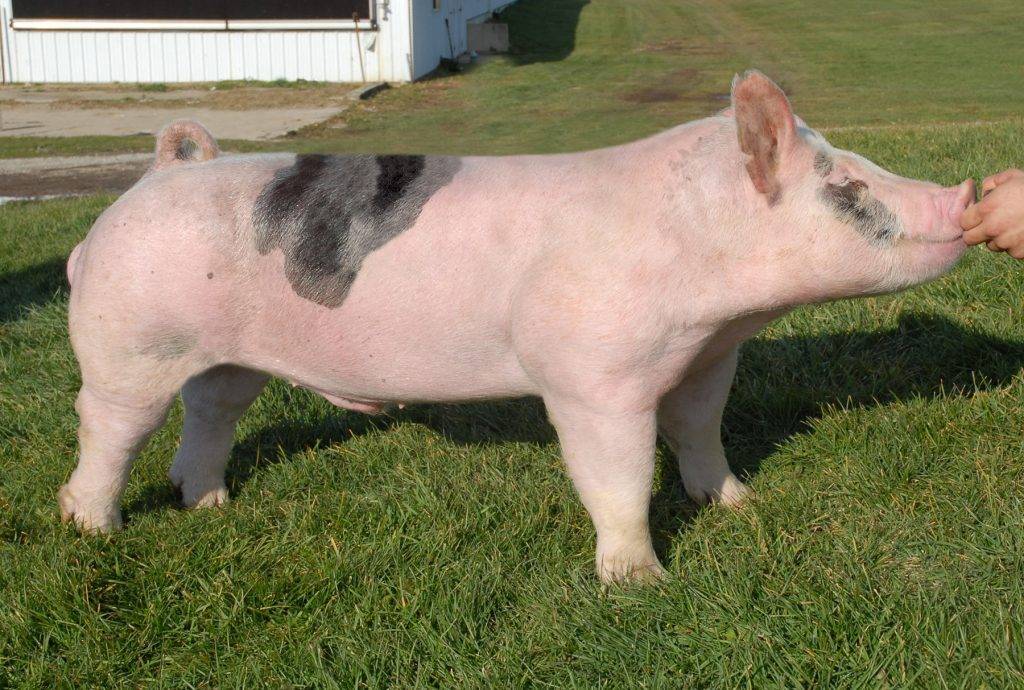
THE WHY
So why do it? James says it’s all about the feeling. He describes this certain feeling you get when you have big, monumental moments in your life. When you graduate high school, college graduation you get those feelings, but when you get married, have, or adopt your kids those are even bigger and better feelings. Those are the moments and the “feelings” that you will never forget.
“I’ll tell you, that feeling when Paparazzi sold, or when he was slapped Grand Champion, I will never forget that day,” James recalls. “When you see one of these junior kids that you’ve worked with for five or six years come into themselves, drive a pig in a major show or you watch them go get crowned champion, you know how hard they’ve worked for it. How much time they put into it and it’s a group effort, mom and dad put a lot of time in, the kids put a lot of time in, us as breeders and helpers, put a lot of time in, those are very fulfilling moments. I hope everyone gets to experience what it’s like to breed a pig that wins The Exposition, or breed a pig that wins the State Fair, or show the pig that wins because those feelings are very, very hard to duplicate.”


